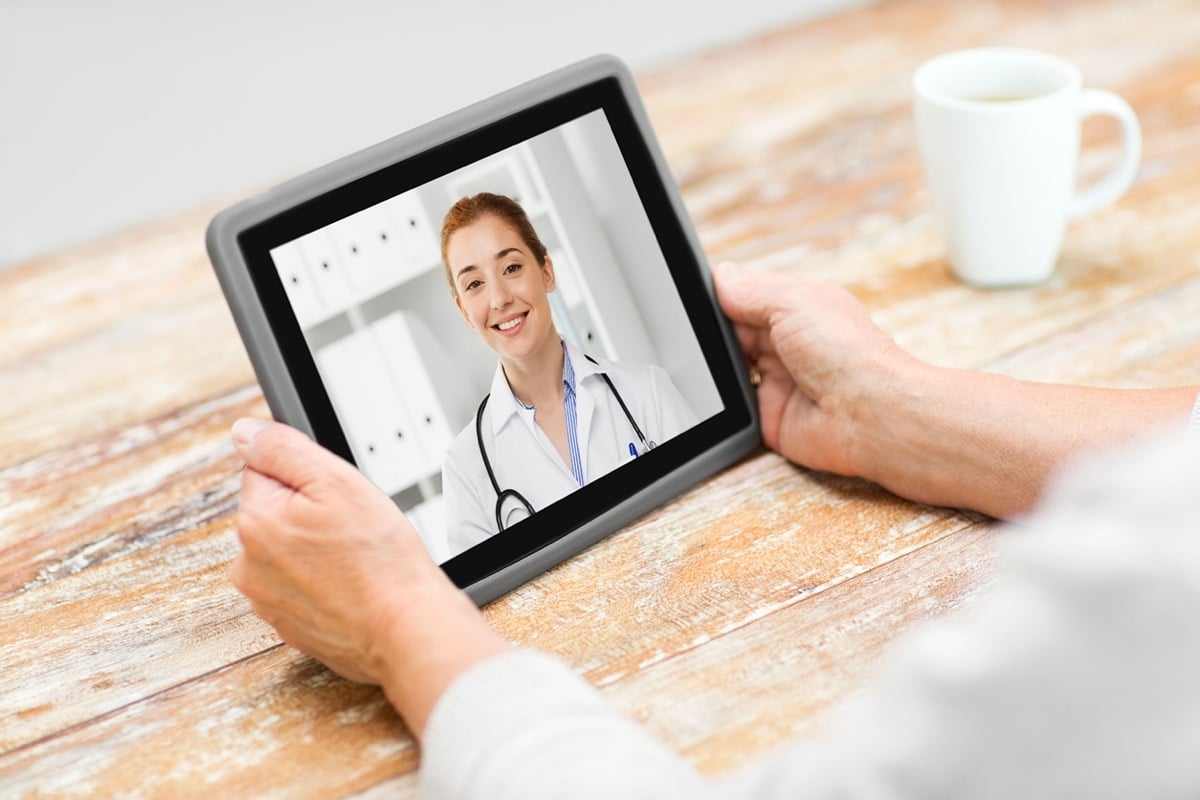
Interest in healthtech grew slowly but steadily in the previous decade. The COVID-19 pandemic, however, supercharged healthtech development.
Participants in healthcare have watched the sector advance rapidly over the past year. Those advancements show no signs of stopping.
“When the pandemic is over, we will have seen a decade of digital transformation [in healthcare] take place,” predicts Jacob Haddad, cofounder of accuRx.
What will that decade of digital transformation look like? Where will it take us next? Patients, providers, researchers and investors all stand poised to embrace the next big thing in healthcare technology.
Imagining a Post-Pandemic World
During the COVID-19 pandemic, patients and providers embraced telehealth services to reduce the risk of contagion and to continue with elective treatments and procedures, even when in-person visits for them were not allowed.
As a result, telehealth use became familiar to both patients and care providers, and it is likely to remain a valuable tool in the healthcare arsenal, write RSM’s Davis Nordell, Matt Wolf and Kurt Shenk.
Nordell, Wolf and Shenk also predict that virtual clinical trials and remote patient monitoring will continue to expand and grow. Both options allow for better healthcare without the resource use of a clinical setting.
Providers are expected to continue spending on smart devices that support healthcare. Gartner analysts Kay Sharpington and Dr. Anurag Gupta, for example, predict that by 2028 IoT spend by healthcare providers will reach $52 billion. To put that into perspective, that figure was $16 billion in 2018. Sharpington and Gupta also predict that chronic condition management and hospital hygiene monitoring will expand significantly as healthcare providers embrace the benefits of smart devices for both purposes.
Smart devices that enable remote patient monitoring (RPA) address another pressing concern for healthcare providers: the need to manage costs.
“Cost optimization is a consistently recurring theme among healthcare providers,” Gupta says. “The money that RPA saves by not having to spend as much on an unreformed process translates into cash that is available for front-end clinical functions.”
Costs were a major concern for healthcare CIOs even before the pandemic. A 2019 Gartner survey, for example, found that 41 percent of responding healthcare CIOs reported a funding shortfall. The pandemic put additional pressure on healthcare funding and resources. As the pandemic wanes, healthcare organizations are likely to express a strong commitment to reducing costs while continuing to provide high-quality care.
Data management will likely play a role in cost control as well.
“I believe that we’ll continue to see an evolution of accessing timely accurate data and will combine that with ways to create information in the form of targeting high-cost, high-risk people that can bend the cost curve of value-based care and the unnecessary cost of care by combining that with what a patient says,” says AdhereHealth CEO Jason Rose.
Healthtech companies are likely to turn to tools that offer both the opportunity to improve patient care and the chance to reduce costs.

Addressing Information Challenges
Data is essential for the effective use of many healthcare technologies, from remote patient monitoring devices to pharmaceutical research.
Yet data also poses a number of challenges. Forays into the fields of data and information management, security and sharing will occupy many healthtech companies in the coming years.
Giving Patients the Information They Need
When patients need information, where do they turn?
Many use Google or other search engines as their first stop. Not coincidentally, many U.S. adults worry that they won’t get the information they need. A Weber Shandwick survey of 1700 Americans found that 52 percent have concerns that information they find about healthcare online will be false or misleading.
“It’s never been easier to find health content online,” Contently editor Jordan Teicher writes. “Yet that same content can be incorrect, promotional, contradictory, or overly complex.”
Healthtech offers a way to get better data to patients through the use of personalized smart devices and other options. These tools can help boost healthcare literacy and empower patients to participate in their own care.
Meanwhile, healthtech companies and healthcare providers are facing data challenges of their own.
Managing Healthcare Data
Some players in the healthcare field, like pharmaceutical companies, have been gathering and using large datasets for decades. Today, however, “the volume and variety of data that’s available today is unlocking opportunities on an unprecedented scale,” writes Vignesh Ravikumar, a principal at Sierra Ventures.
Managing data is likely to play a key role in the success, or failure, of emerging healthtech systems, write Shubham Singhal and fellow researchers at McKinsey. Having the right infrastructure to manage data, for example, will be essential in order to make that data available for use.
Essential to good health data management is good data security. While many healthtech tools embraced during the pandemic allowed providers to keep caring for patients, some of these tools also came with security and privacy risks.
For example, in March 2020 the CDC temporarily suspended the practice of imposing HIPAA penalties on providers for telehealth data breaches, as long as the practitioner was using telehealth tools in good faith. At the same time, however, the CDC warned healthcare providers that telehealth does pose very real data security risks.
“With more people shifting to remote care and a simultaneous spike in cybercrime, regulators are poised to strengthen protections for personal information,” writes Kristi V. Kung, a healthcare partner at law firm DLA Piper. “Expect data privacy and security laws to return to normal following the pandemic and prepare for potentially more stringent privacy laws to follow.”
Meeting regulatory requirements will be one challenging aspect of data privacy and security for healthtech companies and healthcare providers alike. Tools that help providers offer better care and education for patients while rigorously protecting their health information are likely to surge ahead of competing products with weaker security commitments.

Expanding Healthtech’s Capabilities
Existing healthcare technologies are already changing patient care. The rapid adoption of many of these tools to deal with the pandemic, however, means that advances in this field are still ripe for innovation and further refinement.
Encouragement from U.S. federal agencies has further spurred the growth of both telemedicine and remote patient monitoring, Urmimala Biswas at investment research firm Zacks writes. The CDC encouraged the use of telehealth services to reduce the risk of viral spread during the pandemic; in the process, patients and providers experienced firsthand some of the benefits of virtual visits. FDA approval of certain remote patient monitoring technologies intended to reduce hospital visits also boosted the role and value of these healthtech tools.
The Internet of Medical Things (IoMT) also offers opportunities to use smart devices to improve healthcare delivery further. “Because of their ability to independently communicate data, there’s potential for eliminating direct human interaction with systems equipped with IoT devices and central data repositories, automating processes and increasing efficiency and data accuracy,” writes Lucas Mearian, senior reporter at Computerworld.
Smart devices are already in use in many healthcare settings. As our ability to manage data security and analysis grows, however, these devices are likely to become more common in healthcare settings.
When a pandemic threatened our world, healthcare technology rose to the challenge. In doing so, it accelerated its own growth, as well as demand for the tools and opportunities it provides.
Healthtech now has the momentum for significant growth in the next decade. Along the way, it is likely to continue improving tools that are already in use and develop new answers to some of healthcare’s most pressing problems.
Images by: Ivanko Brnjakovic/©123RF.com, everythingpossible/©123RF.com, dolgachov/©123RF.com
